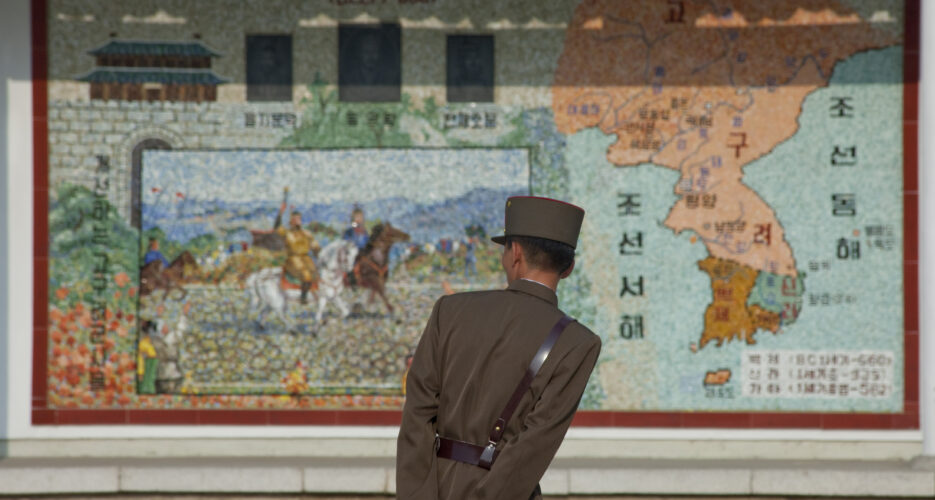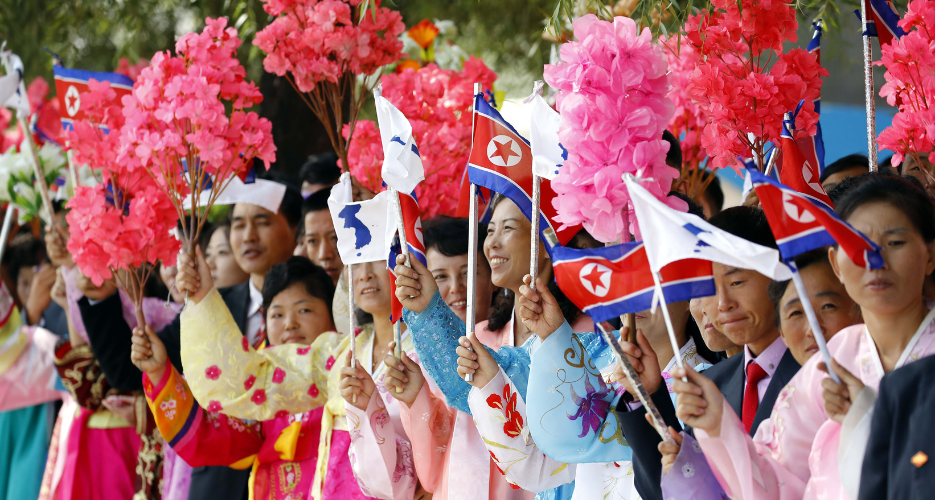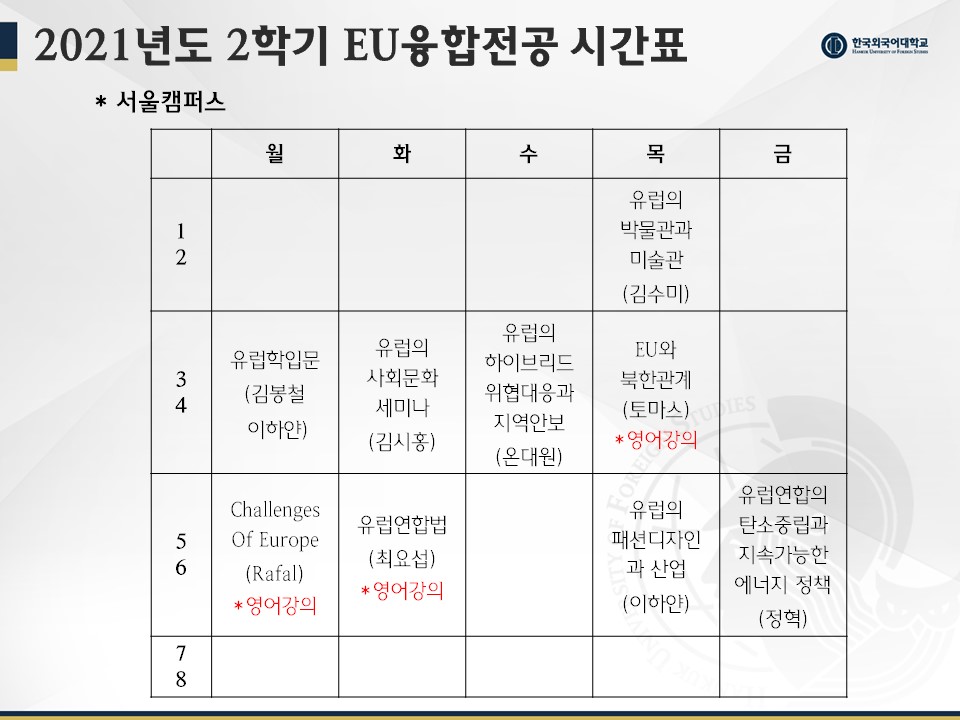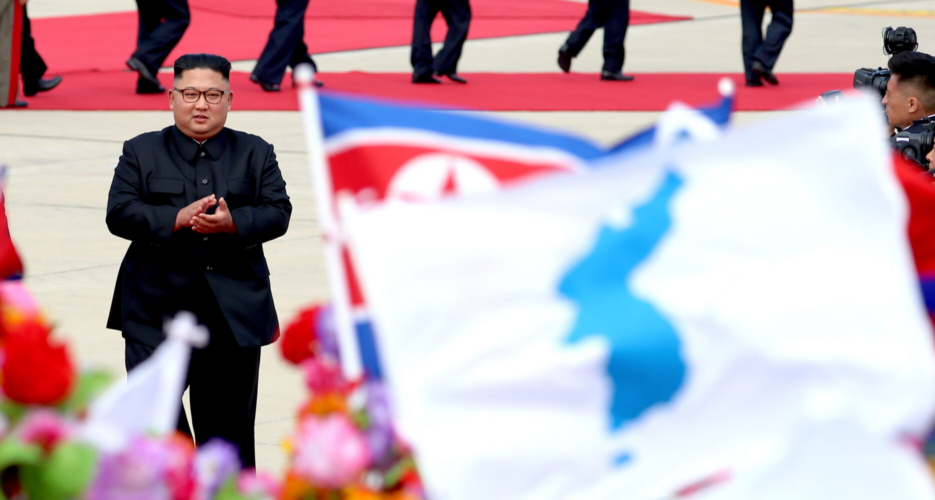
EU연구소 소식
글번호 : 179767853
작성일 : 23.12.06 | 조회수 : 352
| 제목 : [NK뉴스 기고] North and South Korea should abandon the chimera of reunification - Tomasz Wierzbowski | 글쓴이 : EU연구소 |
|
|
|
North and South Korea should abandon the chimera of reunificationTensions and nukes have made unification a pipe dream, and history shows shared culture does not require a single state Editor’s note: The following article is an opinion piece by Tomasz Wierzbowski, an adjunct professor at Hankuk University of Foreign Studies. Views expressed in opinion articles are exclusively the author’s own and do not represent those of NK News. For nearly 80 years, the Korean Peninsula has been divided, a consequence of the geopolitical aftermath of World War II. And yet, even after all this time, both North and South Korea continue to assert their right to sovereignty over the entire peninsula and pay lip service to the shared ideology of national unification. ROK President Yoon Suk-yeol has withdrawn from diplomacy with Pyongyang but has still called for unification based on “liberal democratic order.” North Korea’s ruling party also retained language about struggling to “advance peaceful reunification of the fatherland” when it revised its party rules in 2021. Such reunification policies are long overdue for a critical examination, particularly as the two Koreas rearm their shared border and the DPRK’s continued development of nuclear weapons turns denuclearization into a pipe dream. The rational and logical grounds commonly cited to support the prospect of unification simply do not hold up to any serious scrutiny, and both the North and South would be better off if they accepted their division as permanent and devoted their energies to better — and less quixotic — goals.  A HISTORICAL DIVISION The concept of reunification beloved by Korean nationalists is detached from the history of the peninsula, which has been divided longer than it has been unified. Over the course of more than 1,000 years, various entities such as the Three Kingdoms (Goguryeo, Baekje and Silla), Gaya, Unified Silla, Balhae and other realms co-existed with each other in different forms. Interestingly, the locations of guard posts on the border between Silla and Goguryeo were approximately the same as the current guard posts in the Demilitarized Zone. This historical perspective suggests that the division of the Korean Peninsula into different governing entities is — if not a natural state of affairs — at least the more common one. While it’s true that the peninsula was largely unified for over 500 years under the Joseon Dynasty, there has never been a modern Korean nation-state in a sense conceptualized by the post-Westphalian world order. At the beginning of the 20th century, Korea was an underdeveloped, corrupt and in practice a failed state. It was vulnerable to domestic and external threats, and unable to keep up with its neighbors. Paradoxically, Korean society joined the modern world through Japanese colonization. In this context, Korea does not even have a past as a unified nation-state to long for. And even if it did, history demonstrates that states undergo cycles of unification and division. The Roman Empire, which endured as a single political entity for almost 15 centuries, eventually ceased to exist. The Mongolian Empire, once spanning the Eurasian continent, is now a peripheral state situated between two major powers. These historical examples underscore the fluidity and impermanence of political entities. CULTURE ISN’T ENOUGH It is unquestionable that both Koreas share, in general, the same language and culture, and that they are rooted in the same history. But such linguistic and cultural connections are not exclusive to the Korean Peninsula, and these examples show that such commonalities in no way require political unity. Take the case of the U.S. and Canada. These North American neighbors share a common language and display cultural features shaped by their intertwined colonial past, yet they retain distinct national identities. In South America, nine of the thirteen countries have Spanish as their official language, and while retaining distinct cultural characteristics, they also share many similarities as a result of their colonial histories. Australia and New Zealand present a similar story. Differentiating between the flags of these two nations would likely pose a challenge to me, a reflection of their interlinked pasts as part of the British Empire. Belarus, with a language closely resembling Russian, has been historically intertwined with Russia and the Soviet Union for centuries. Indeed, it is difficult to distinguish a European nation’s history without referring to neighboring countries or the whole continent. Germany and Austria not only both speak German but have a history so interwoven that prominent figures from these countries are frequently confused. Take Ludwig van Beethoven, commonly associated with Vienna but born in Germany, or Nazi leader Adolf Hitler, who was born in Austria Almost 60% of Belgium’s population speaks a language almost identical to that in the Netherlands, though the Flemish Region remains part of Belgium. Czechia and Slovakia, speaking very similar languages and sharing a common history, made the voluntary decision to divide themselves, bringing an end to Czechoslovakia. All of these examples parallel the situation in Korea in some way but show that different nations can share culture, language and history and still remain separate political entities.  WHAT’S NEXT? Neither language, history, culture, identity nor unification before 1945 provided sufficient or even necessary conditions for Korean reunification. The imperative for unification is emotional and romantic — partly because external forces imposed the division on Koreans rather than it being their choice. It reflects a desire to become something that Korea has never actually been. It is plausible that some form of Korean unification would yield economic benefits, but this seems likely to occur in the very long term. Given the election cycles in the South and the hereditary rule in the North, neither leadership envisions such a prolonged timeline. Any potential long-term economic benefits would also be preceded by significant political and social turmoil, stemming from indisputable differences between the two systems. It’s questionable whether other countries in Northeast Asia would welcome this. All of this means that both Koreas should abandon their long-standing unification policies. South Korea’s unification ministry has no genuine reason to exist. Its resources could be redirected toward addressing more practical issues, such as education and welfare services, rather than toward a nebulous goal that it will never achieve. Other parts of the government are better positioned to engage the DPRK diplomatically and address military threats. The two Koreas could signal that they are dropping their plans for unification by changing their English names to match the original Korean — Hankuk for the ROK and Joseon for the DPRK. Such a move would have the side benefit of making our lives much easier when selecting one of the Koreas from drop-down lists. This would establish a basis for the two Koreas to peacefully coexist in the international arena as two separate, sovereign states. *https://www.nknews.org/2023/12/north-and-south-korea-should-abandon-the-chimera-of-reunification/ |
|








 l 연구 l EU연구소 소식
l 연구 l EU연구소 소식


